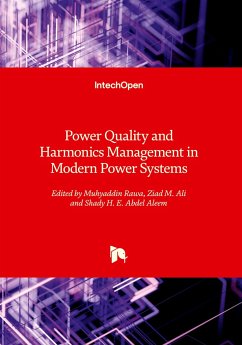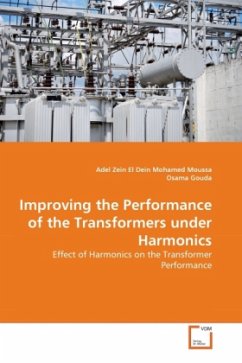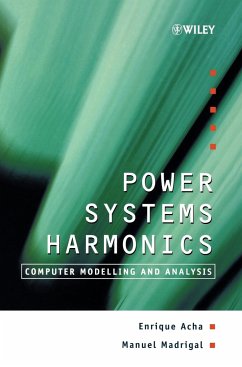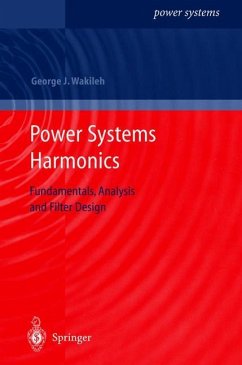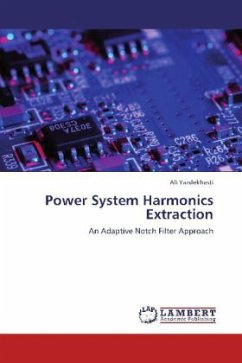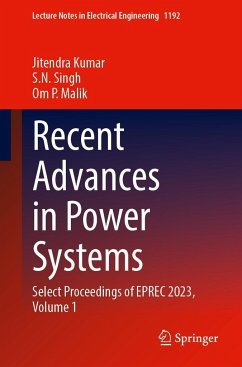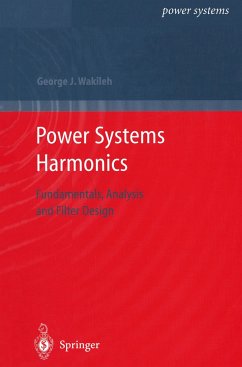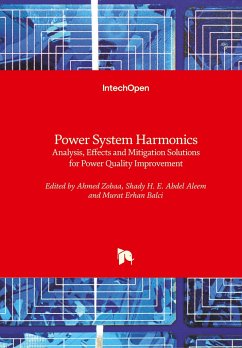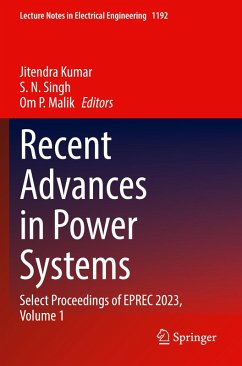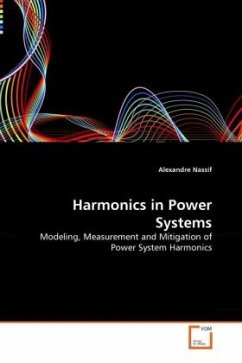
Harmonics in Power Systems
Modeling, Measurement and Mitigation of Power System Harmonics
Versandkostenfrei!
Versandfertig in 6-10 Tagen
52,99 €
inkl. MwSt.

PAYBACK Punkte
26 °P sammeln!
An emerging class of harmonic sources is comprised of power electronic-based home appliances. These appliances are dispersed throughout the low-voltage distribution system, and their collective impact can result in unacceptable levels of voltage distortion. This book presents an evaluation of the relative severity of the harmonic currents from these devices. Typically, the voltage supplied to each harmonic source is already distorted, causing a change of the harmonic current magnitudes. This book characterizes this effect of appliances and proposes a harmonic modeling technique to include it i...
An emerging class of harmonic sources is comprised of power electronic-based home appliances. These appliances are dispersed throughout the low-voltage distribution system, and their collective impact can result in unacceptable levels of voltage distortion. This book presents an evaluation of the relative severity of the harmonic currents from these devices. Typically, the voltage supplied to each harmonic source is already distorted, causing a change of the harmonic current magnitudes. This book characterizes this effect of appliances and proposes a harmonic modeling technique to include it in appliance modeling. One of the most economic and effective ways to mitigate harmonics in power systems is through the use of shunt passive filters. These filters can be of many topologies. An investigation is carried out to identify the most cost-effective topologies for mitigating harmonics. As many of the larger harmonic loads also generate interharmonics, interharmonics have become prevalent in today's medium-voltage distribution system. A method for interharmonic source determination is proposed.



